AFL footballer Brayden Maynard reveals how teacher at De La Salle helped shape him
AFL footballer Brayden Maynard has told of how one of his favourite teachers at high school changed his life.
News
Don't miss out on the headlines from News. Followed categories will be added to My News.
AFL footballer Brayden Maynard always hoped one of his favourite teachers Rob Bonnici would be proud of him after he left high school.
Mr Bonnici played a special part in the Collingwood defender’s education. He always had Maynard’s back, supporting him when he struggled academically at times at De La Salle in Malvern and, as his PE teacher, by encouraging and guiding him in his pursuit of an AFL career.
Fast forward 10 years to when the pair caught up at a De La Salle football jumper presentation dinner last month, and it would be natural to assume Maynard’s exploits on the footy field would be that source of pride. It was much more than that.
“At the presentation he came up to me and said, ‘I’m really proud of the man you’ve become and what you stand for’,” Maynard said.
“Those comments sum up the way he’d been able to teach and guide me through my time at De La Salle and he said to just keep doing what I’m doing. It was a really positive reinforcement.”
Mr Bonnici said Maynard had grown into an impressive young man both on and off the field and his willingness to give back to the school and his community was an example of his generous character.
“That’s an aspect that is missed a lot in terms of the person Brayden is off the football field, his work in terms of wanting to give back to the community and support families and individuals that may be less fortunate,” Mr Bonnici said.
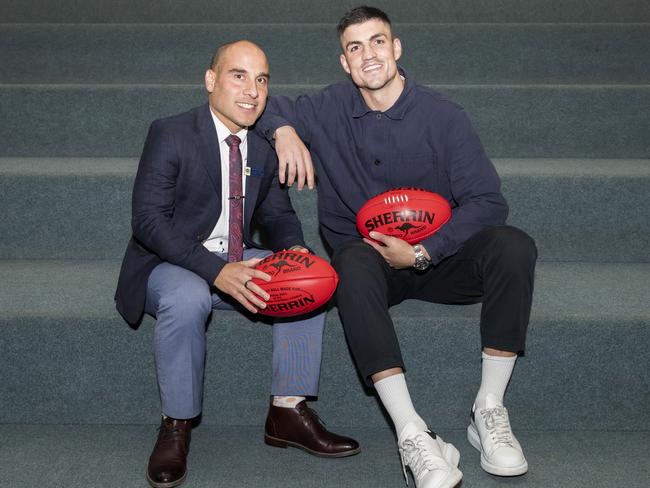
“That’s a real attribute that hopefully he got from school, and his family and friends. I like to think the school played some role.”
Maynard thanks multiple teachers for shaping his future.
“They invested so much time into me to inspire me to be better as a man on and off the field,” Maynard said.
He said Mr Bonnici, in particular, had always been a great role model and helped keep him grounded enough to finish his studies at the same time as his football career was taking off.
Maynard is a regular visitor to De La Salle as one of its alumni and supporter of the senior football team. He can often been seen on the sidelines watching matches on a Wednesday and has presented the team’s jumpers to players for the past two years.
This year he took to the stage to address the footballers and their families about his own journey from school to the Magpies and even offered to take any student’s phone call if they were struggling and wanted to talk at a later date.
That is something Maynard could never have imagined himself doing as a terrified high schooler who had to complete public speaking tasks one-on-one in Mr Bonnici’s office.
“To stand up in front of cohorts of students and families and speak openly about his own challenges at school and beyond, I think that’s a great testament to the person he’s becoming – and his character,” Mr Bonnici said.
Maynard, who is also working in a football recruitment role, said he was thankful he was pushed to practise public speaking because it now helped him communicate with the kids
“I can get my message across a lot better than I probably would have,” he said.
Mr Bonnici, now the deputy principal, said it was important for alumni to return to campus to show students what their futures might be like.
“I have a lot of students that have no idea what they want to be in 3 or 5 years’ time, but if they can see role models of past students that come back and deliver messages – often the same ones we have been telling them -- it just resonates more with the students.”
Principal Peter Houlihan said alumni helped shape school culture and support student growth.
He said bonds like the one between Mr Bonnici and Maynard encouraged students to discover their individual talents.
“What a school like De La Salle does, is help each student find that gift or talent and make the most of it. Some kids are good at sport, some are good academics, and some kids are not much good at anything but they have a place to belong. And they’ve got to be given confidence and respect in a safe space for them.”
Maynard said he always enjoyed returning to his old school.
“Once a De La boy, always a De La boy,” he said.
VIC TEACHER: WHY BRAIN BREAKS AND A BOGGIE MATTER
As a male, Foundation teacher, Michael Zerbi is somewhat of a rarity in our education system.
Known for his infectious enthusiasm at Our Lady of Pines primary school in Donvale, the former performing arts teacher, knows the weight of responsibility this job carries.
“We don’t have a lot of males in primary education, let alone in our junior foundation level,” said Mr Zerbi,
He said there was a bit of a “stigma” attached to males entering the teaching profession when he was at university. This is sadly reflected in the number of male teachers in primary education, leaving some students without positive male role models at this formative time in their lives.
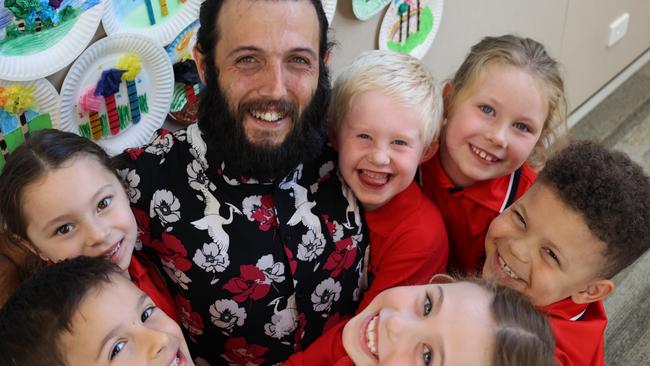
Mr Zerbi emphasises the importance of creating a safe and engaging learning environment, which at Foundation level means they can get a bit silly.
“We always have our ‘brain breaks’ or a bit of a boogie to get the jellies out. So there are moments when you see them wriggling on the floor and not concentrating, and so I’ll say, ‘all right, everyone up, we need to boogie. Quick get the jellies out and let’s reset’. If I forget to do it, there are kids at the end of the day saying Mr Zerbi, ‘we haven’t had a boogie today’. It warms my heart,” he said.
“If the environment is right and the child feels comfortable and they feel safe, it takes away some of their anxieties and opens up their mind to go, ‘I want to learn’.”
Reflecting on his path to teaching, Mr Zerbi said his career choice was inspired by the joy and simplicity of his own childhood.
“When were the happiest times in my life? When I was young and had nothing to worry about. I was happy at school.”
When it comes to the challenges of teaching foundation-level students, Mr Zerbi highlighted the diversity in readiness and skills among young learners.
“Some of them come in knowing how to read … some of them come in with no idea, which is also okay because it gives you a starting point and it’s my job to fill them with knowledge,” he said.
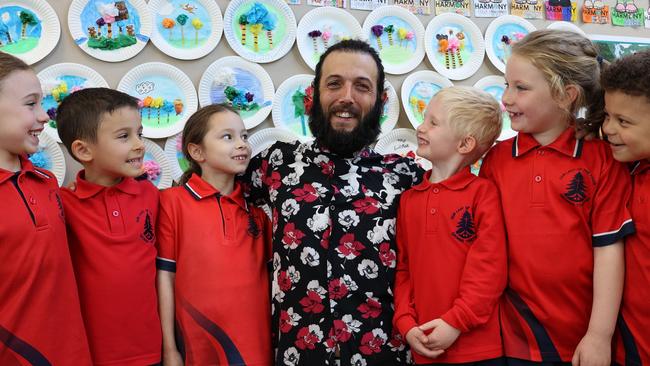
Mr Zerbi was nominated in the Australia’s Best Teacher campaign by a parent who has seen her daughter go through tremendous growth under his care.
In her nomination, Lisa Pieropan wrote: “My daughter is a shy girl who has some speech difficulties. Michael has worked sowell with her this year and has fostered her independence and confidence in her learning. He has supported her, been an excellent role model, and her understanding of phonics and language has improved immensely. He is so kind, positive and encouraging of my little Foundation girl.”
Reflecting on his personal growth as a teacher, Mr Zerbi acknowledges the evolving nature of the profession.
“Teaching has changed since I’ve started … you can’t do it all as much as you want to,” he admits, underscoring the need for teachers to find balance and avoid burnout.
In offering advice to aspiring educators, he emphasises the importance of patience and perseverance.
“If you have the patience, this is definitely a gig for you.”
VIC STUDENTS’ ‘FRIENDSHIP TOOLKIT’ CHANGING LIVES
Edwina Ricci is proof that qualified teachers can use their unique skillsets beyond the classroom as she teaches children in her community how to be good friends.
Ms Ricci has 35 years’ of education experience as a maths teacher and in wellbeing roles, but is now working as a positive educator in the community to empower kids with friendship toolkit to navigate tricky friendship issues and create a culture of kindness at school.
“Relationships are central to the best learning environments for kids — the right relationship with their teacher and their relationships with each other,” Ms Ricci said.

Using the URStrong Friendology program, she teaches a common language to students, which can be supported by teachers and parents, to help them understand the nuances of friendships.
“They need to understand the difference between a ‘friendship fire’ (like a blip in the friendship) that wasn’t intentional and can be resolved and when someone is being mean to them on purpose,” she said.
NOMINATE YOUR FAVOURITE TEACHER HERE
“Only 15 per cent of interactions are probably mean on purpose, whereas 85 per cent are just friendship fires and we have a process of talking it out to put the fires out then forgive and forget.
“The best thing is we allow them to manage their own friendships. We are not coming and rescuing them, we are saying ‘you can sort this out’.”
Ms Ricci is bringing the program to life as the Project Manager of the Maroondah Positive Education Network, a partnership between Maroondah City Council, local schools, the Department of Education and the Eastlands Shopping Centre in Ringwood, which has set up a permanent Ninja Friendship Zone.

She says her teacher training has helped her in the role.
“My teaching skills have taken me to lots of places. The skills you gain, of managing for yourself as a teacher when you shut the door to the classroom and it’s just you and the kids, they can lead you anywhere.”
Rolling Hills Primary School principal Craig Bradley said Ms Ricci was changing little lives with her work.
“Excursions to Eastland are more than just a change of scenery; they serve as a critical extension of the classroom, allowing students to apply the strategies and frameworks they’ve learned to real-world settings. By engaging in Friendology activities outside the school environment, students are able to consolidate their understanding of key concepts such as effective communication, empathy, and conflict resolution,” he said.
Jess Mann, principal at Vermont Primary School said “it’s so important for our students to be able to manage their relationships to manage healthy conflict that occurs in those relationships and to be confident strong people moving forward into secondary school and beyond”.
“The investment in Friendology has really benefited the whole community because all the messages of healthy relationships and strong connections will filter through to sporting clubs and wider school communities out into the general public and that is good for everybody.”
HOW VIC PRINCIPAL IS MERGING 3 SCHOOLS INTO ONE
A major project to amalgamate three schools into one is hoping to secure a solid future for Catholic education in Melbourne’s east.
The ambitious initiative will see Holy Saviour and St Timothy’s Primary Schools close and be reborn as part of a Kindergarten to Year 12 offering with the highly regarded Emmaus College in Vermont South.
Emmaus principal Karen Jebb has worked with principals from both primary schools to create a “whole of schooling” option for families in the area.
“We wanted to leverage our name and reputation at the school to create an exciting and unique offering for families, and particularly Catholic families, in the area,” Ms Jebb said.
“We see it as a guaranteed pathway to help families place their children into the senior school which has previously had more requests for enrolment than availability.”
Ms Jebb came from an early learning to Year 12 school before taking on the principal role for 1500 students currently at Emmaus and said she “had the experience and understanding of how that model works”.
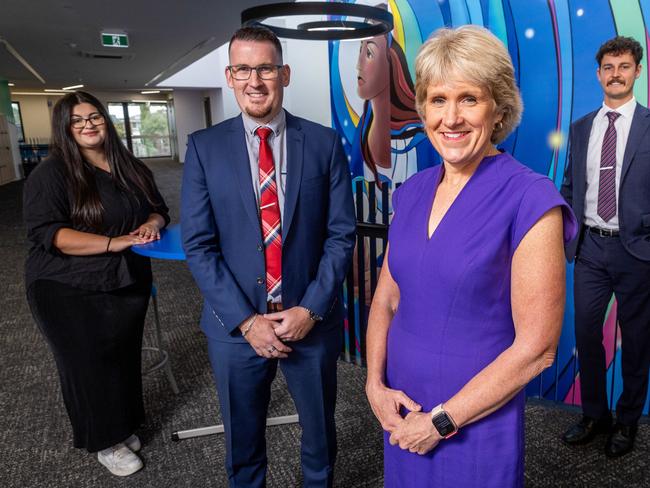
The Holy Saviour campus will become the Emmaus Junior School with early learning facilities and primary school students from 2025.
“It is a big campus and we will work with our building and property team to redevelop the site to easily cater for up to 250 students,” Ms Jebb said.
The current Year 9 campus at Burwood will transition in 2026 to the previous St Timothy’s primary school site and house the Year 9 program.
And in 2027, the Burwood campus will transition to become a Trade and Training Program for senior students.
The amalgamation has the blessing of Melbourne Archdiocese of Catholic Schools and the Archbishop -- as well as existing parents at the two primary schools.
“It has been received very well. Parents are excited that they have a future for education in the area,” Ms Jebb said.
“They feel like they belong in the school community and if they are invested in the school they will make solid family friendships and transition through their school years easily.”
Holy Saviour principal Steve Evans said dwindling enrolments at both primary schools meant the project made sense.
He said converting his primary school into the junior campaus was the biggest — and most exciting — project he’d been involved in throughout his 20-year teaching career.
“I think we could be really setting ourselves up for something that create an excellent model ofr other areas and regions within Catholic education,” he said.
“It will provide affordable, seamless education from kinder to Year 12 and parents will appreciate the continuity and certainty”.
While the Emmaus footprint will get bigger, the almagamated model will still highlight the importance of maintaining a personalised approach with specialised services.
“We need to start establishing new ways of working for the greater good of education,” Mr Evans said.
“We will still be here on the Holy Savoilur parish land, so we maintain that connection, but to come under ht ebnaner of Emmaus College sort of reinvigorates and reimagines how we can approach education in our space while having great access ot resources and facilities and staffing.”
The staff at Emmaus are excited by the change.
Middle house leader Damien Kaye, 29, admitted it was a “radical change” but said he see it as “a great opportunity to improve the transition for kids from primary school to high school”.
“Having the handover process in-house now for kids in Grade 6 and coming into Year 7 will help us to better manage their learning needs and their wellbeing needs. It will make things easier to support the children from Kindergarten to Year 12.”
Mr Kaye, who also teaches in the classroom, said teachers would benefit from greater job satisfaction.
“I am in a privileged position where I have great job satisfaction. I am happy to do extra hours each day knowing I’ll get that job satisfaction from making a change in students’ lives and wellbeing, which is why I got into this role.”
PE teacher Breannah Vescio, 25, said Emmaus wants to grow its diverse community and she finds the move invigorating.
“We’ll be able to have a greater impact on supporting these students from kinder and primary school right to the end of high school. And we’ll develop as teachers, too. It’s exciting.”
HOW TEACHER WENDY WYNGAARD FOUND HER ‘VOICE’
Teacher Wendy Wyngaard’s story is one of resilience, compassion, and the transformative power of education.
A Humanities teacher at Emmaus College in Vermont South, Ms Wyngaard’s journey began in apartheid-era South Africa, where she navigated the tumultuous landscape of segregation and oppression.
Born into a family of educators, Ms Wyngaard inherited a reverence for the value of learning from her mother. But it was the injustices she witnessed in her homeland that ignited her passion for teaching.
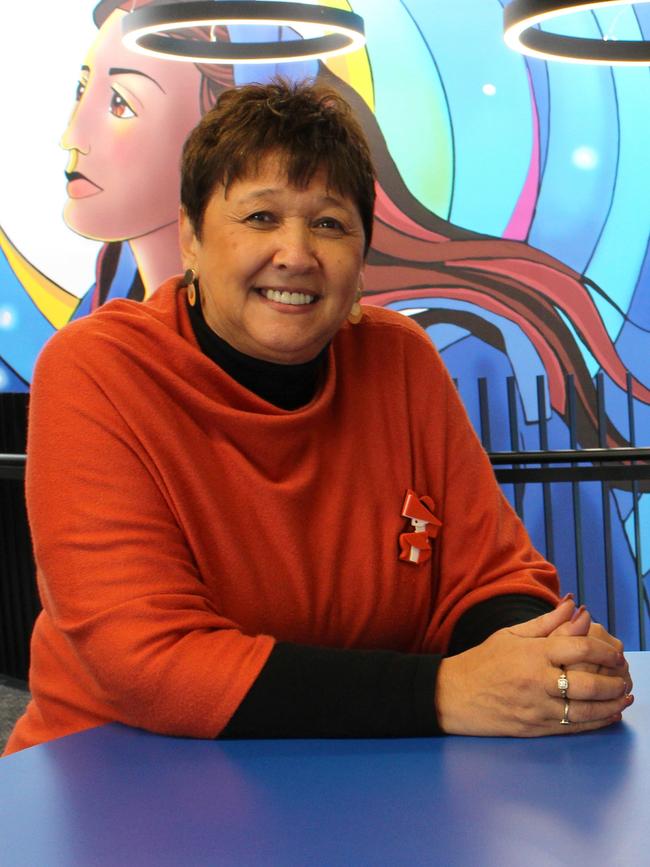
In apartheid South Africa, where she grew up as part of a marginalised community, education wasn’t just a means to knowledge; it was a pathway to equality and empowerment.
“I am mixed race and during apartheid we were treated as second-class citizens, but our teachers inspired us, they told us we were equal and no one is better than anyone else,” Ms Wyngaard said.
She saw first-hand how education could be a catalyst for change and it is these lessons she imparts on her students today.
“Even though we were treated badly by the apartheid government, we felt valued as students and we understood the importance of education. Education could help us get out of where we were and give us a voice.”
As a middle school leader at Emmaus College, she wants to inspire gratitude in her students and the belief that they can achieve anything they set their minds to.
“When I ask them about what they know about South Africa, they might say Nelson Mandela, but they don’t really know anything about apartheid. I might show them where I lived or where I went to school. I’d show them a classroom of 60 kids and say, can you imagine that? That’s three times the size of this class. I hope it makes them realise just how lucky they are.”
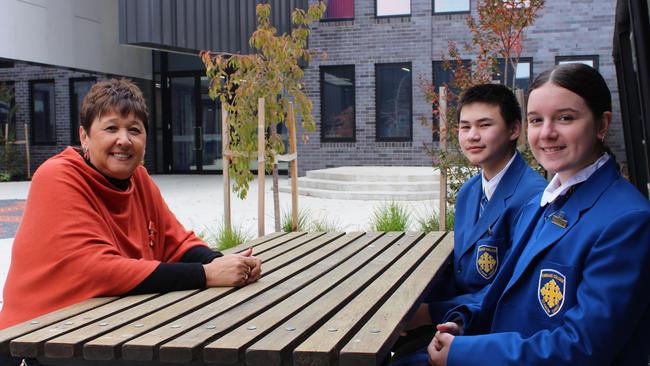
Her efforts didn’t go unnoticed. The gratitude expressed by school families serve as a testament to the profound impact she had made. In nominating Wendy in Australia’s Best Teachers campaign, parent Carlee Clements wrote: “Wendy is the most incredible, professional and compassionate person we’ve ever met. She goes above and beyond making sure all her students feel valued. We’ve had three children taught by Wendy and she is a super star among teachers. She is an angel and we adore her. Wouldn’t be getting through high school without her dedication and care. A true leader and professional.”
Having taught for 19 years, Ms Wyngaard said it was lovely to receive acknowledgment for her work, and is always encouraged by the progress individual children make in their school journey.
“I had a student come up to me at the end of the term to say thank you for helping him get through a difficult time. That’s what makes teaching so special. Every child is different, every child is special and they all have a story to tell. If you can help them, then everything is worthwhile.”
‘NATURAL FIT’: TEACHER WAS BORN TO TEACH IN RURAL VICTORIA
Melanie Grant is the English co-ordinator at Murrayville Community College, three hours east of Adelaide on the Victorian side of the border. She shares in her words what it’s like teaching in a rural town.
There was a strange, eerie feeling in my English class as hail came down.
The students sat there, disheartened and worried, knowing their parents were concerned about the crops and what would happen if there was any more rain, let alone hail damage.
Of course, you’re not going to get them to sit there and do their work when they’re worried about that.
It’s moments like these that highlight the unique challenges of teaching in rural communities — challenges that many people outside of these areas simply don’t understand.
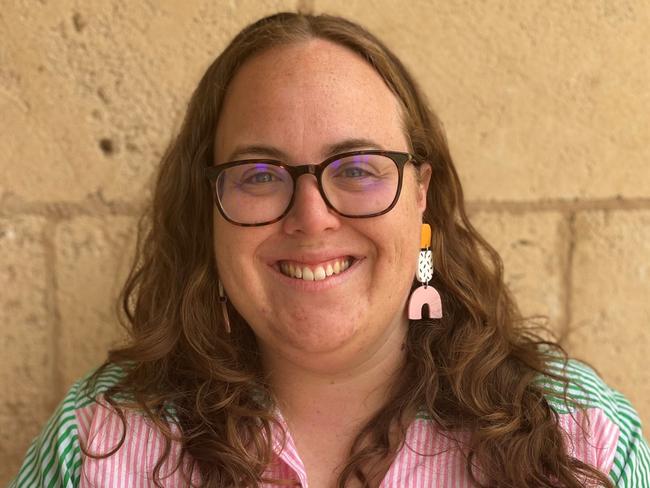
I never imagined myself as a teacher, not until I was in Year 12 trying to decide my future.
Growing up, my family valued education deeply. They were the ones who ignited my love for learning.
We’d sit together, discussing news, sharing opinions, playing games in the car, like listing all the Prime Ministers of Australia or naming dinosaurs.
Looking back, I realise teaching and a love for learning was always in my blood.
I was just yet to know it.
When the time came to choose a career path, I felt lost. But I knew I wanted to make a difference, especially in rural communities like the one I grew up in.
I wanted to be that supportive and inspiring figure for kids who might not have had the same opportunities or support at home.
So, I took a leap and decided to pursue teaching.
It felt like a natural fit — I loved reading, I loved learning, and I wanted to share that passion.
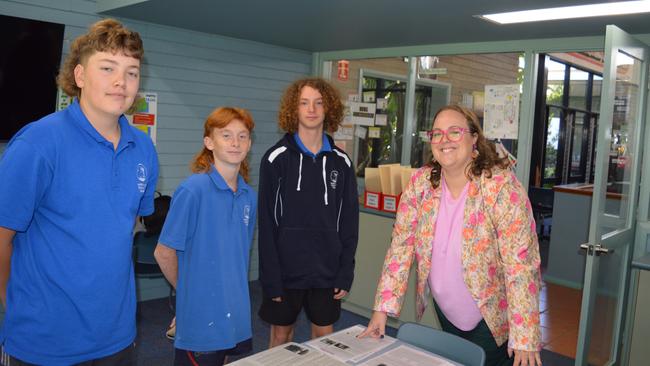
I ended up in the Northern Territory for my teaching rounds, and that experience changed everything. It made me realise that where you teach matters just as much as what you teach.
I’m a country girl at heart, and I knew I wanted to give back to communities like the one that shaped me.
I was fortunate to be one of 30 participants in the Teachers Mutual Bank and Bell Shakespeare Mentorship Program in 2016.
This was a turning point for me. It helped me discover my love for Shakespeare and gave me the confidence to step outside my comfort zone as a new graduate.
Suddenly, teaching Macbeth wasn’t something to dread — it was something to embrace, to make exciting and relevant for my students.
Over the years, I’ve seen the impact of my teaching in countless moments.
From a student acing a test they once failed to delivering moving speeches, each moment reaffirms why I do what I do.
It’s the little victories that keep me going — the moments when I see a spark of understanding in a student’s eyes or witness their growth and resilience.
Innovation is key to my teaching philosophy.
I love challenging myself and my students, whether it’s transforming Macbeth into a CSI investigation or organising a drive-in movie night for the community.
Every class is an opportunity to try something new, to spark curiosity and creativity in my students.
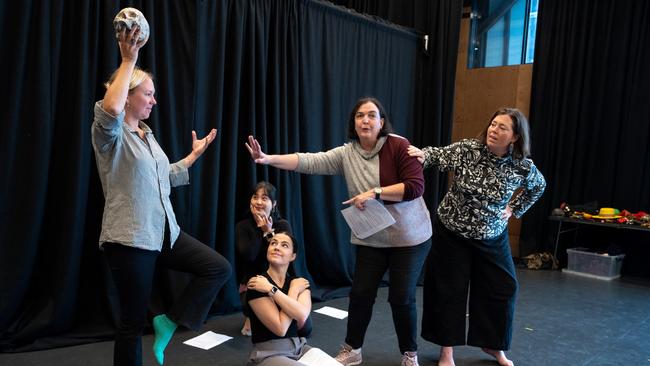
Teaching in a regional school has its challenges, but it’s also incredibly rewarding.
The sense of community and connection is palpable, and I wouldn’t trade it for anything. Positive feedback from students, colleagues, and parents fuels my passion and reminds me why I chose this path.Looking ahead, I hope to see greater appreciation and support for teachers.
We’re not just educators — we’re mentors, role models, and advocates for our students’ futures.
By celebrating the dedication and passion of teachers, we can create a brighter future for education and empower the next generation of learners.
And speaking of eliminations, there’s one word I’d love to eradicate from the conversation and that’s “just”.
I’m not “just” a teacher. I’m proud to be a teacher, and I refuse to downplay the importance of my profession.
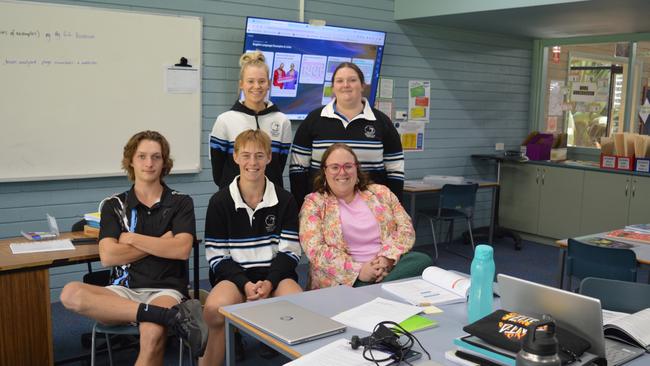
Teaching is the beginning for all other careers, and teachers have such an amazing opportunity to see the beginning of how students are inspired and learn.
I love that we see their potential and can help foster that.
So, let’s celebrate teachers for the incredible work they do and the impact they have on countless lives.Teaching is the cornerstone of all careers, shaping future leaders and demanding respect and support.
However, it often faces unacknowledged challenges. To enhance the support and respect for teachers, three key changes are needed.
Firstly, we must see more positive media coverage, highlighting teachers’ dedication and achievements.Secondly, we should shift focus from counting hours to valuing diverse contributions within the school community.
Lastly, there should be greater recognition of the demands and emotional toll of teaching, fostering collaboration and appreciation for educators’ tireless efforts.
WHY VIC TEACHER INSPIRES GIRLS TO DO MATHS
Alice Hu wants girls to understand there are no barriers preventing them from excelling in mathematics.
As a mathematics teacher extension and enrichment co-ordinator at Elevation Secondary College, she finds the sexist notion that girls are naturally inclined towards humanities rather than math deeply frustrating.
The disproportionate number of males excelling in maths had a profound effect on her as a student studying Bachelor of Music/Science, Musicology and Mathematics at the University of New South Wales.
“From second year I dropped out of advanced maths. Not that my grades revealed that I was struggling. I felt that my presence in the class was noted … women made up less than a quarter of the class in the biggest maths faculty in Australia,” Ms Hu said.
“I felt fairly isolated and much more inclined to build community in my music side. But I saw that gap and towards the end of my degree I got involved in an outreach program in the maths faculty called Girls Do The Maths to encourage girls in high school to consider a career in STEM.”
During the pandemic, Ms Hu, who had been working at the university, joined the Teach For Australia program, which is an employment-based pathway to teaching, earning a Master of Teaching.

It was clearly a move in the right direction. Last year, she was honoured at the Victorian Education Excellence Awards for her outstanding contributions to education, particularly in the field of mathematics. Today she is recognised again as part of the Herald Sun’s Australia’s Best Teachers campaign.
The Herald Sun has joined forces with corporate partners Officeworks, Teachers Mutual Bank, and Melbourne Archdiocese Catholic Schools to launch Australia’s Best Teachers campaign Sunday, to celebrate the nation’s best educators. It is part of a concerted push to drive greater respect and recognition for teachers.
“I grew up as the eldest of five, so I think I always had a kind of a mentoring outlook. This was a little bit of a pivot, but I’ve always been very interested in education. I just didn’t know when or how I was going to contribute.,” she said.
Ms Hu is currently on a year-long stint in Singapore on a New Colombo Plan scholarship. She said there is one marked difference when it comes to the subject of maths in Singapore.
“They seem to have a pretty equal gender balance among high performing girls and boys in high school,” she said.

In contrast, maths anxiety among girls in the classroom is very real in Australia, and something Ms Hu is working hard to address.
“Some of the research suggests that these self beliefs that women have that they can’t do maths start very early on. We know we have a maths teacher shortage in Australia but if we can empower teachers to build those early numeracy skills in students, it can make a big difference,” she said.
“You do need someone to support you and, and show you that the struggle is something that everyone goes through and it’s actually really rewarding to keep up. Productive struggle is not nurtured in our students throughout school.”
Women are not hugely represented in the STEM field, which is a painful reminder to young girls that this is a space they have to fight for.
“I think the fact that all these amazing women in mathematical sciences that I met at university are struggling to get up the ranks is a problem. If girls don’t have the right role models, then what? ‘If I can’t see myself in that role, I don’t believe I can do it.’ Representation is important.” she said.
Celebrating inspirational and impactful teachers across Australia. Follow the series and nominate.
More Coverage
Originally published as AFL footballer Brayden Maynard reveals how teacher at De La Salle helped shape him




